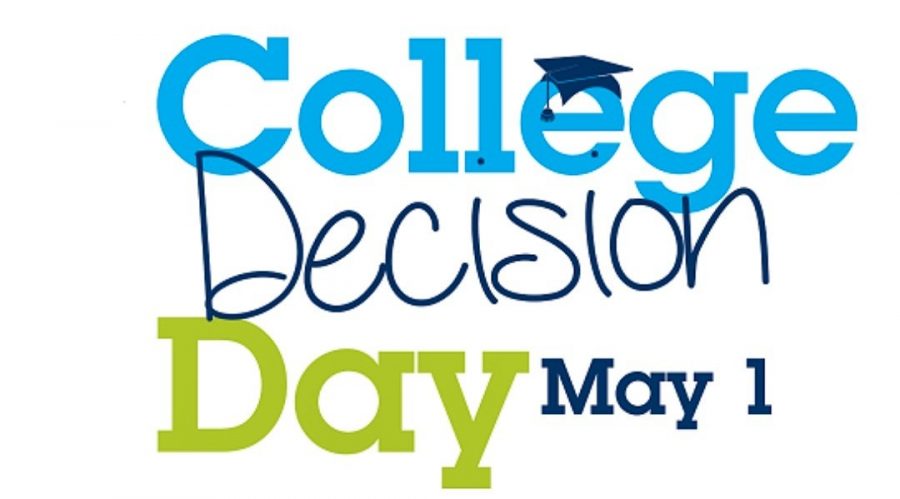The Choices We Make
April 6, 2020
NEW MILFORD, New Jersey – Mia has officially committed to the University of Maryland. She’s nervous and can’t help but wonder about the ramifications of her decision.
Was this the school she really ought to attend? Should she have chosen a school of better ranking? Or maybe a more politically active one?
Seniors, in less than a month, as you sign off on your own college commitments, many of you will find yourselves in a situation similar to that of Mia’s.
But must committing to a place where you’ll spend your next four years need to be that stressful or anxiety-ridden?
Generally speaking, I’d like to think that perhaps none of your big life decisions should have to be conditioned on such uncertainty. Perhaps your negative outlook into your future is merely predicated on society’s own cultural norms of what it expects from you. Take the concept of “Murphy’s Law,” for example. Following a lucky streak of events, how often do you find yourself describing in great detail the list of terrible things you are convinced will follow next? It’s almost as if we are programmed for the worst. This is not cool. Not cool at all.
But anyway, on the topic of programming, what can we do to change this mindset and take every big decision (like Mia’s) from an anxiety-ridden to a more calm and relaxed one?
The wise (and unwise alike) have agreed that it’s a matter of choice. Choosing to set our eyes on whatever is “true, noble, right, pure, lovely, admirable, excellent, and worthy of praise,” as the old Christian adage puts it, will help us transform ourselves. During moments when I’ve felt that the whole college application and decision-making process were just one big headache, one which I was certain was more than I could ever handle, I tried to reflect on that old Christian adage, which interestingly enough always made the difference.
And even on the days when terrible things do happen to us and we feel justified in shaking our fists at the sky or listening to that sad Spotify playlist, we still have a choice. Take it from Abe Lincoln, who could have thought his life to be defined by tragedy. It wouldn’t be surprising if he thought so given the tragedy in his life, like for example, the death of his childhood sweetheart, the loss of his first real job, seven political defeats, and a major panic attack. But that kind of “tragedy,” negative mindset, wasn’t what he chose to accept for his life. As he once remarkably stated, “most folks are as happy as they make up their minds to be.”
So, to get to the point, regardless of the positive or negative events in your life—as in Mia’s, we can almost always count on there being a choice. We have the choice to find our own peace, happiness, or whatever else good we look for or want to come to terms with, in our lives.
I hope, as commitment day (as with all other important decisions) nears, that you, reader, will remember that you indeed have a choice.

















































































































































